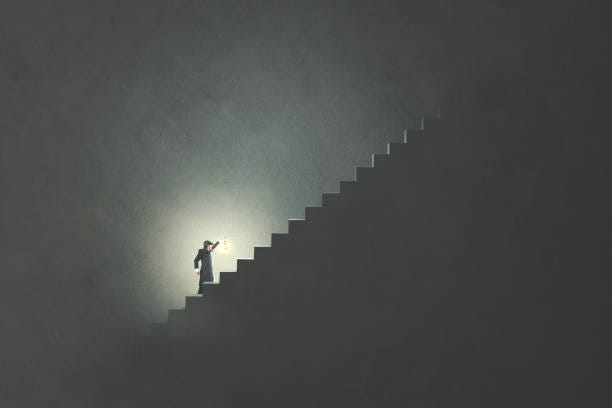The 5 Stages of Unlearning
The shedding of the skin
“The truth will set you free. But it doesn’t make the truth hurt you any less, nor will you find the truth any prettier.”
- RT
1. Denial:
You are still blindly attached to the trendy beliefs and ideas about education, teaching, and learning.
These are usually the beliefs and ideas you’ve read or heard from idealists, Ted-talk stars, motivational gurus, and non-teachers/non-educators.
When you hear something like, “learning styles is a total junk”, you vehemently deny it. Or, you are not ready to question the ideas of traditionalism, progressivism, moralism, and social constructionism.
The cognitive dissonance is far too intolerable.
You are not ready to bear the burden of realizing that what you’ve been conditioned to believe for so long are simply comfortable ideals and feel-good expectations about education, teaching, and learning.
2. Anger:
You’re angry because you suddenly feel a sense of contradiction. This dissonance gives you a sharp headache.
You shout, “This is ridiculous ! Why do I have to think critically, challenge my own beliefs, and jump through all the hoops in the name of becoming a better teacher? I’m already a better teacher. Why do I have to improve?”
You justify, “I’ve been doing this way for all these years. It has worked fine. Now someone comes along and talks about doing it the other way !!!”
You are mad, "Impossible. Whatever you are talking about can not be done in my class. So why are you wasting my time?”
You insist, “When I stand tall and simply stare, students become completely silent. Don’t tell me how to manage my class!”
You rationalize, “All the behavior or misbehavior is simply communication. I treat every student of mine with love and care. Don’t tell me how to care for my students!”
You blame the society. The politicians. The education system. The parents.
3. Bargaining:
Your anger eventually fades, but you still have the nagging feeling of discomfort. So you bargain.
“But I have been teaching just fine. And the students have been learning just fine. Can’t I just do what I’ve been doing? Why do I have to reflect and question what has been going on just fine?”
“May be students will learn better if I do this. I might give it a try but I don’t want to do anything different just for the sake of it. Why change the stuff that has been working?”
4. Depression:
After having swallowed the “truth”, the bitter taste of reality lingers on. All the idealisms looks funny. All the philosophy looks skewed. All your beliefs turn out to be fake. You are consumed in regret and remorse. So you enter into the state of utter sadness.
“Enough. Everything I have done looks like a lie. Everything I believed turned out to be fake.”
Your cherished possession “Pedagogy of the Oppressed” turns out to be a scam. Appealing face about education. Deeper agenda of politics. You realize your professor gave you this book because you looked gullible.
5. Acceptance:
You slowly gain awareness. You see the holes in your belief. You eventually accept: this IS the way learning happens. Your old teacher self gradually dies. Enlightened teacher self emerges. You shed your skin and start again.
This is hardly an original idea. I know.
This comes from “the 5 stages of grief” pop-psychology concept, where a person goes through the stages of confronting death and eventually coming to acceptance of the reality.
Our path towards unlearning, as teachers, does not need to be the same. It does not have to be in a sequence of stages. Most of the times, a drop of awareness is enough to bring ripples in your consciousness. And you might just start questioning. Sometimes, even a sledgehammer won’t be able to crack your hardened beliefs. And you might forever remained plugged in the world of idealism and emotionalism.
The path is yours. And only yours to choose.



Thanks for writing this, Umes. I appreciate the 'breaking the mold' around the idea that teaching is set after X amount of years, rather it's a continual process that is learned and unlearned as the world changes.
I'd extend the same can be true for learners. When we think about what we *want* to learn, whether that's pure knowledge, a set of skill, or attitudes / perspectives, there's a journey of unlearning previous learning habits. That can lead us into the 5 stages.